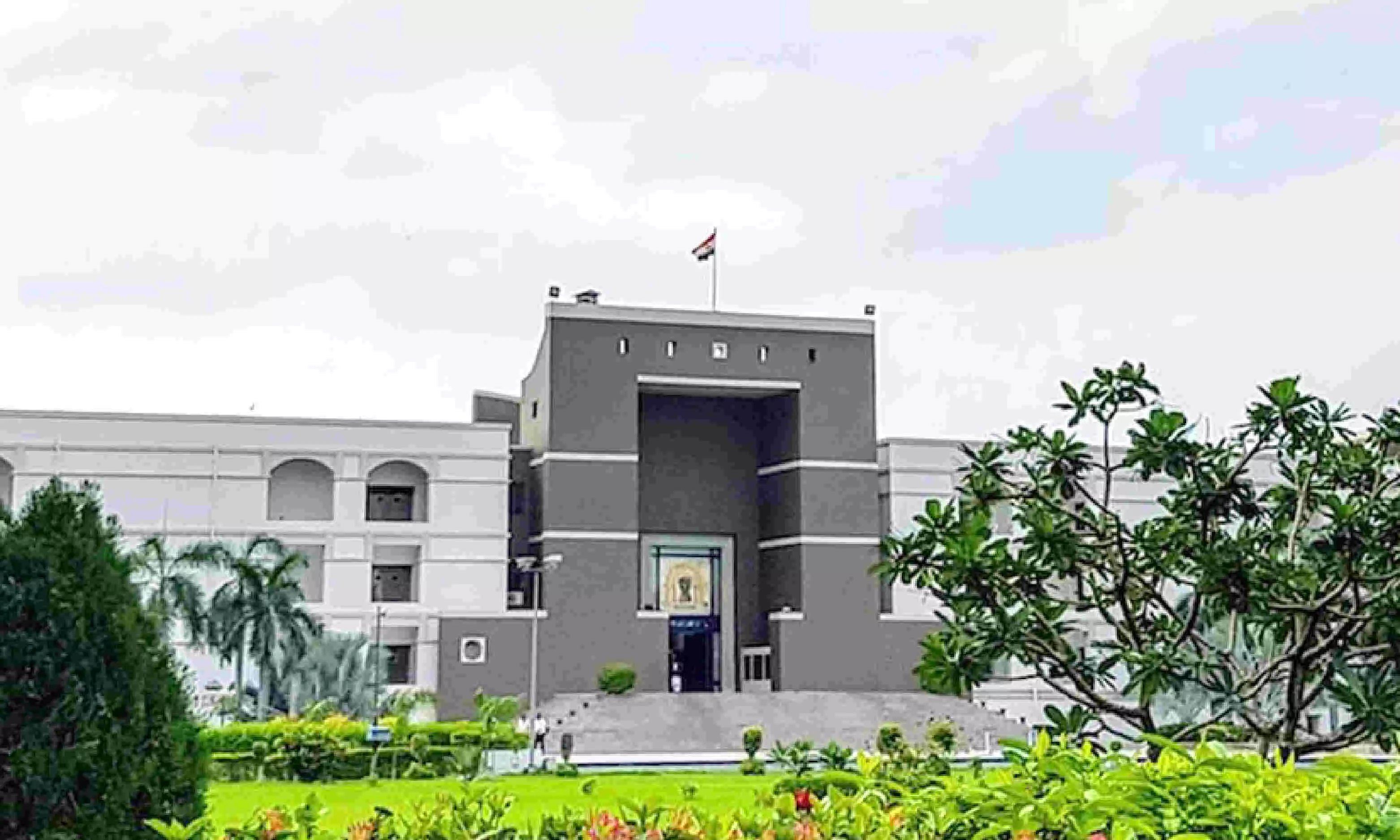
Error Of Judgment Or Act Of Negligence On Part Of Petitioner In Discharging His Duty Would Not Constitute Misconduct: Gujarat HC
 |
|The Gujarat High Court upheld that the dismissal of the writ petitioner from service by the Insurance Company (Appellant) was not justified as it did not establish that the petitioner's actions amounted to misconduct. The Court emphasized that misconduct implies wrongful intent, not mere errors or negligence in judgment.
Among two related appeals, the appeal had been filed by the Insurance Company challenging a judgment that set aside the dismissal order of the petitioner from service and the subsequent order passed in appeal confirming the same. The Court had ruled that the petitioner should receive all consequential benefits as if the dismissal order had never been issued. The petitioner, in a cross-appeal, contested the rejection of his claim for interest on pension and other benefits resulting from the annulment of the dismissal order and its confirmation in appeal.
A Division Bench of Chief Justice Sunita Agarwal and Justice N.V. Anjaria held that, “For the above discussion, we reach at a irresistible conclusion that it may be a case of error of judgment or act of negligence on the part of the petitioner in discharging his duty, but that itself would not constitute misconduct, as it has not been shown or established by the appellant – Company that the said act of the appellant had resulted in irreparable damage to the Company, to indicate the grossness of negligence.”
The case centers around the petitioner, a Senior Divisional Manager at New India Assurance Company Limited, who faced charges of misconduct related to the settlement of 10 claims in the Lok Adalat during the year 2014-15. The charges alleged that the petitioner had settled these claims with an ulterior motive, disregarding company norms, guidelines, and the law, leading to a loss of Rs. 66,81,105 to the company.
Advocate Vibhuti Nanavati appeared for the Appellants and Advocate RV Deshmukh appeared for the Respondent.
The petitioner contended that the charges do not constitute misconduct, emphasizing that misconduct implies wrongful intent, not just errors or negligence.
During the inquiry, the petitioner's defense was that decisions regarding compromise settlements in the Lok Adalat were a collective effort, and he was not solely responsible. The inquiry found no evidence to establish the petitioner's sole responsibility for the settlements, deeming them the result of a team effort.
The disciplinary authority's office order also highlighted instances where guidelines for compromise settlements had not been followed, and a legal officer responsible for these cases, had not recorded dissenting remarks despite the absence of liability under the law. In her defense the legal officer claimed that she acted under the directions and guidance of the officer in charge, as there were no written documents or manuals outlining the duties of a legal officer at that time.
The issue before the Court was whether the writ petitioner was solely responsible for these settlements or if it was a collective effort.
The Court discussed charges against the legal officer, who did not fulfill expected duties, mishandling claims files, and failing to state when the company had no liability. Her defense of following superiors' orders was rejected, with the Court stating she was expected to obey lawful orders per company policy. As a result of the disciplinary process, a minor penalty reducing her status for one year was imposed on the legal officer.
The Court discussed the findings made by the Single Judge in the impugned judgment, noting that the petitioner’s role included various responsibilities related to claims processing and settlement, with multiple officers involved in the process. The Court also highlighted that the charges primarily revolved around settling claims in the Lok Adalat, contrary to the company's policy manual.
The Court observed that deposition of prosecution witnesses indicated that settling claims in the Lok Adalat was a collective effort, and the Inquiry Officer's findings suggested a lack of evidence to support the charges. The standard of proof for the charges was not met.
The Single Judge had therefore, concluded that the petitioner's actions were not driven by ill intentions or ulterior motives. The inquiry report did not substantiate claims of misconduct or wrongful intent.
The Court held that, “we find that the petitioner cannot be held guilty of misconduct as his role was to endorse the proposal of settlement placed before him by the Legal department. The settlements were drawn / drafted in consultation / deliberation between the Law Officer of the Company namely Ms. Shipra Tanwar, Penal Advocates and the Advocates for the Claimant. No ill motive, as such, can be attributed to the writ petitioner by putting his signature on the compromise pursis.”
Moreover, it was further noted that there were no allegations of personal gain or corruption against the petitioner. The charges primarily centered on violating company policy, not financial impropriety.
The Court noted that the Single Judge had held that the petitioner's role was to endorse settlements proposed by the Legal department, and attributing ulterior motives or misconduct to the petitioner was unjustified. The Single Judge found that any errors or negligence by the petitioner could be considered an error in judgment or omission but did not constitute misconduct, as they did not result in irreparable damage to the company.
The Court stated, “No interfere, as such, is called for in the decision of the learned Single Judge. The appeal filed by the appellant Company being Letters Patent Appeal No. 1114 of 2022 is hereby dismissed, being devoid of merits.”
The appeals filed by the appellant company were dismissed due to a lack of merit. The petitioner's appeal seeking interest on unpaid amounts after retirement was granted, and the company was directed to pay all withheld or deducted benefits with interest.
Cause Title: The New India Assurance Co. Ltd. v. Chandrakant Gokalbhai Patel
Click here to read/download Judgment